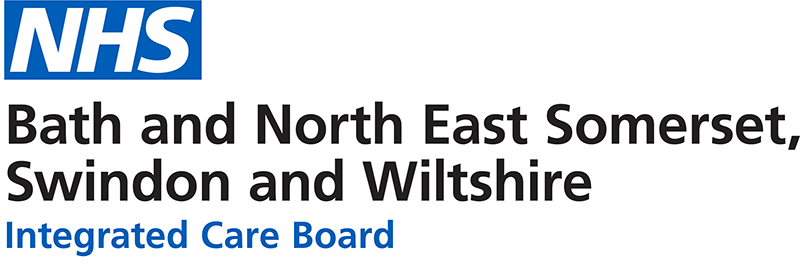Don’t be blue, take action to look after you
The third Monday in January is often referred to as Blue Monday.
With the continuation of the Covid-19 pandemic, lockdown restrictions, financial concerns, health worries and more, this year it’s even more important to recognise the signs that you or someone you care about may be struggling with poor mental health.
On Blue Monday (Monday 17th January) Avon and Wiltshire Mental Health Partnership (AWP) NHS Trust is encouraging everyone to consider how they are feeling and take steps to look after your mental health.
Dr Dan Hodgson, Consultant Psychiatrist, said: “We will all experience challenges with the way we are feeling at different times.
“While Blue Monday can raise the profile of mental health difficulties and encourage people to talk about their feelings, it’s important we recognise the difference between feeling down and anxious for short periods of time compared to long periods of depression and anxiety, which can often have a huge impact on our day to day lives.
“We know the continuation of the global pandemic has affected everyone is some way, with many of the things we do to protect our mental health, like socialising, financial security and hope for the future, continuing to be uncertain.
“We’re asking people to recognise the signs that they or someone they care about needs help and to take action to get the help and support they need.”
Advice
If you are experiencing low mood and anxiety for the first time, it may be helpful to talk to someone about how you are feeling.
There is also lots of help and support you can access online or through voluntary organisations.
If you’ve tried this and still feel you need help, you can self-refer to talking therapies services. You can find more information here.
If you are an existing AWP patient or service user, you should contact the team outlined in your care plan or the Intensive Support Team identified to help you.
If you are in crisis, or concerned about someone who is in immediate danger, you should contact the emergency services on 999. For urgent, but not life-threatening medical needs, contact NHS 111 online or by phone for immediate help and guidance to an appropriate service.
Dan continued, “If you’re a parent, carer or friend worried about someone else, try and encourage them to talk to you about their feelings and to seek support.
“Just talking through their worries may help them to think more clearly and encourage them to access help.”
Take care of your mental health
There are things you can do to look after your mental health:
- Stay connected with people – stay in touch with family and friends by phone, video call or social media
- Talk about your concerns – sharing your worries and fears can help you feel less anxious
- Support others – helping someone else can make a real difference to them and also help you feel good
- Look after yourself – try to eat healthily, drink plenty of water, avoid smoking and drugs and try not to drink too much alcohol
- Get some exercise – Take regular walks outdoors, if possible, and increase aerobic exercise, particularly under bright light conditions. Studies have shown that walking fast for 30 minutes a day five times a week or 60 minutes a day three times a week improves symptoms of mild to moderate depression. Research has confirmed that exercise under brighter light improves general mental health and emotional wellbeing, social functioning and energy levels
- Do things you enjoy – this will help take your mind off your worries
- Focus on the present – rather than worrying about the future try to focus on the present and try relaxation techniques to help with anxiety
- Get a good night’s sleep – sleeping well can help with how we feel mentally and physically, so it is important to get enough
Support and help available
The below helplines can provide someone to talk to:
- 24/7 mental health telephone helplines set up in response to the pandemic. For more information visit: https://www.nhs.uk/service-search/mental-health/find-an-urgent-mental-health-helpline
- Samaritans – call 116 123 or email jo@smaritans.org
- Campaign Against Living Miserably (CALM) for men – call 0800 58 58 58 5pm to midnight
- Papyrus – for people under 35 – call 0800 068 41 41 10am-10pm Monday to Friday, 2pm-10pm weekends, 2pm-5pm bank holidays, email pat@papyrus-uk.org
- Childline – for children and young people under 19 – call 0800 1111
- The Silver Line – for older people – call 0800 4 70 80 90
For people in need of somebody to talk to, a number of services are available that offer one-to-one support without the need for an appointment.
Breathing Space in Bath, the Junction in Swindon and the Riverside Sanctuary in Salisbury each provide dedicated mental health support, either over the phone or in-person.
The three services are open during the evenings, and people are encouraged to first call ahead before visiting in person.
- Breathing Space in Bath
Open: Monday, Tuesday, Wednesday and Thursday (5.30pm – 11.30pm)
Contact: 01225 983130
- The Junction in Swindon
Open: Seven days a week (4pm – 11pm)
Contact: 01793 286506 - Riverside Sanctuary in Salisbury
Open: Tuesday, Wednesday, Thursday and Friday (5pm – 9.45pm, with in-person drop-in sessions on Wednesday between 4.30pm and 8.30pm)
Contact: 01772 466680
